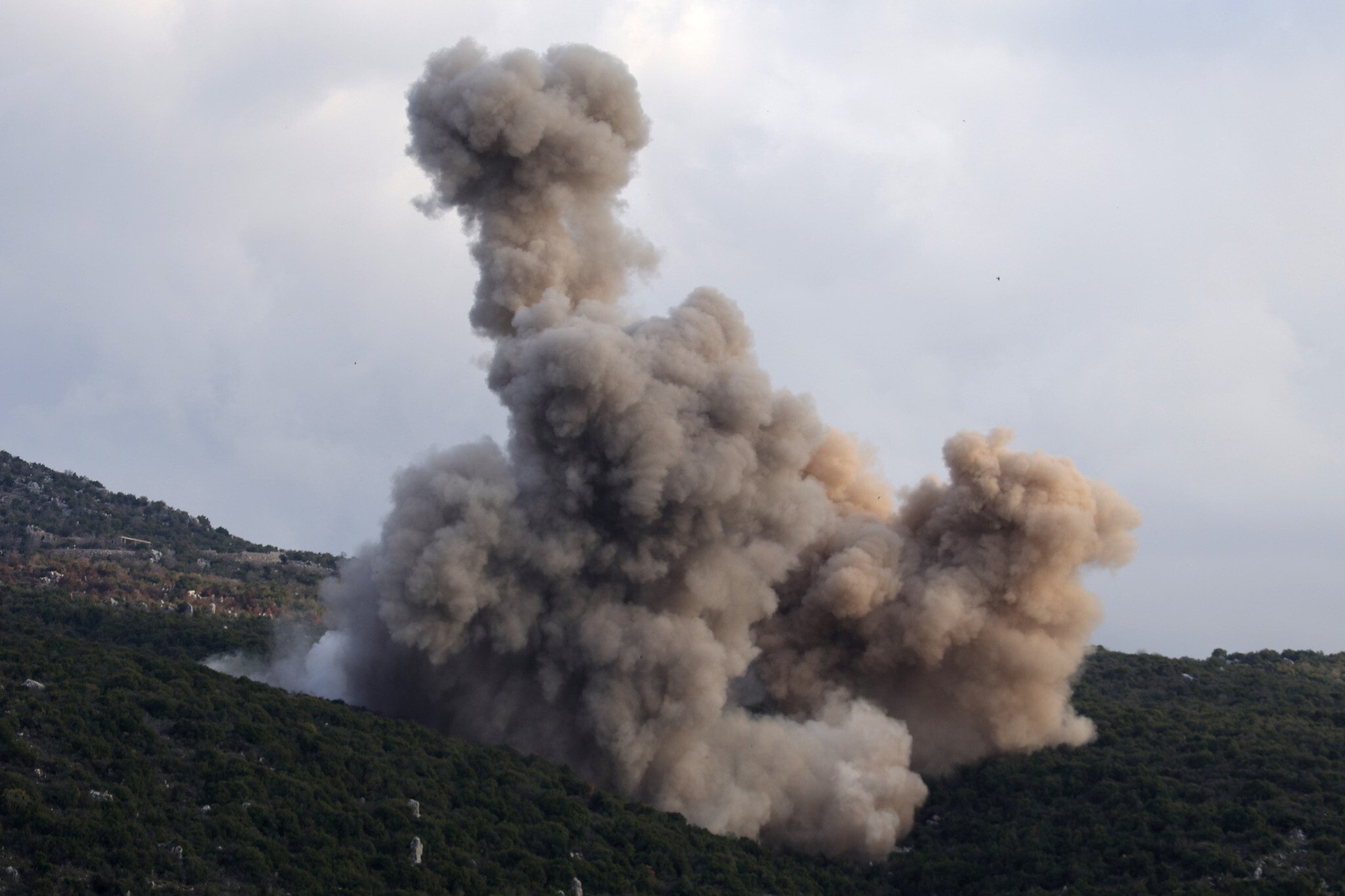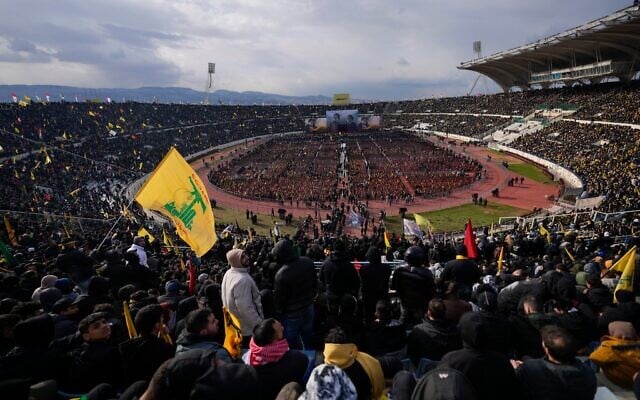



Israel carried out a series of airstrikes on south Lebanon on Sunday, the Israel Defense Forces said, as the country prepared for the mass funeral of slain Hezbollah leader Hassan Nasrallah.
According to Lebanese reports, the strikes occurred near the towns of Qlaileh and Zebqine, close to the coastal city of Tyre.
The IDF later confirmed the strikes, saying they targeted rocket launchers threatening civilians.
“A short while ago, the IDF conducted a precise intelligence-based strike on a military site containing rocket launchers and weapons in Lebanese territory, in which Hezbollah activity was identified,” a military statement said.
“Additionally, several rocket launchers that posed an imminent threat to Israeli civilians were struck in southern Lebanon.”
The strikes came ahead of the joint funeral for Nasrallah, who was eliminated by Israel in September, and his intended successor Hashem Safieddine, whom Israel killed in October.
Tens of thousands were expected to attend the proceedings in Beirut, including officials from dozens of countries.
A fragile ceasefire between Israel and Hezbollah was implemented in late November after over a year of skirmishes that were punctuated by two months of all-out war.
While the ceasefire has largely seen hostilities cease, Israeli forces remain in five strategic locations within Lebanese territory despite the agreement calling for an Israeli withdrawal from Lebanon within 60 days of its implementation.
Israel has justified its continued presence in Lebanon on Hezbollah not withdrawing from southern Lebanon as the agreement requires.
Israel and Hezbollah have repeatedly accused each other of violating the agreement, which gives Israel the right to act against imminent threats by the Iran-backed terror group.
Israel invaded Lebanon in September in a bid to stem the terror group’s persistent rocket fire, which had displaced some 60,000 Israeli civilians in the north of the country. Hezbollah’s near-daily attacks began, unprovoked, on October 8, 2023 — a day after fellow Iran-backed terror group Hamas stormed southern Israel to kill some 1,200 people and take 251 hostages, sparking the war in Gaza.
Hezbollah’s attacks on Israel since October 2023 have resulted in the deaths of 46 civilians. In addition, 80 IDF soldiers and reservists have died in cross-border skirmishes, attacks on Israel, and in the ensuing ground operation.
The IDF estimates that some 3,500 Hezbollah operatives have been killed in the conflict. Around 100 members of other terror groups, along with hundreds of civilians, have also been reported killed in Lebanon.
Agencies contributed to this report.

